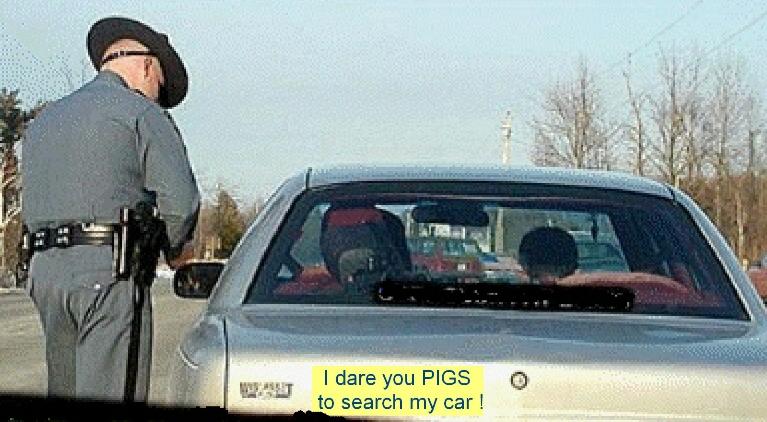
In March 2011, Ofc. Mike Tamez of the Kingsville Texas Police department saw a Chevy Tahoe going just two miles above the speed limit. He observed air fresheners scattered throughout the interior and several pro-law enforcement bumper stickers. The vehicle had a Drug Abuse Resistance Education sticker on it, so Tamez came to the conclusion that the occupants must be drug runners. He stopped the vehicle and eventually arrested the occupants for having over $670,000 in cash. The case made its way to a federal appeals court, who up upheld the stop as legally justified.
Nohemi Pena and her family were cruising along U.S. Hwy 77 in Texas, when they were stopped for no apparent reason. After being issued a warning for going two miles over the limit, Tamez became suspicious, due to the fact that there were an abundance of air fresheners and pro-law enforcement bumper stickers. He proceeded to talk to Nohemi and grill her on her whereabouts. He continued to talk to her husband, identified as Ruben Pena-Gonzalez. After pressuring Ruben, he was able to get permission to search the vehicle. He quoted in his report “Pena-Gonzalez’s carotid artery visibly pulsed, his face twitched and his breathing was labored.” His expertise in observation led him to believe a crime was being committed. During the search $670,000 in cash, wrapped in small bundles, was discovered.
Both Ruben and Nohemi were arrested and charged with money laundering. Their lawyer fought the charge, stating that the discovery of the money was fruit of the poisonous tree. This argument was denied in circuit court, thus the case made its way to the federal appeals court. The federal appeals court had to decide whether or not the prolonged detention of Pena was justified; based on reasonable suspicion detected by the officer, after the initial traffic stop was addressed. Despite the argument from Pena’s lawyers, that bumper stickers and air fresheners were not sufficient to reach probable suspicion by law, the court disagreed. They found that the officer was justified in his detention of Pena, based on the circumstances he encountered.
The court justified the decision by stating “Tamez testified that a number of things he observed and smelled during the course of the stop made him suspicious: the large number of bumper stickers supporting law enforcement, which he contends shows a desire to be viewed as a ‘good guy’ who ‘can’t do no wrong’; numerous air fresheners placed throughout the vehicle, which experience taught him is an attempt to mask the odor of drugs or drug money; Pancho Villa and St. Jude medallions on the key chain, both of which he characterized as icons commonly used by drug smugglers along Highway 77 as symbols for righteousness and protection; and three rosaries hanging from the rear view mirror, which his experience led him to believe are also used by drug traffickers for protection.”
This is just one of the many cases that shows how rights are eroded away slowly, rather than not taken all at once. The court’s decision, based on the experiences of one officer, set a precedent that will hold nationwide. The ruling fundamentally allows police to stop and detain you, based on the type of bumper stickers you have, and dig for criminal activity. Pena’s husband was convicted of tax evasion and their money was never returned to them.
Sources: Police State USA, Justia.com.





